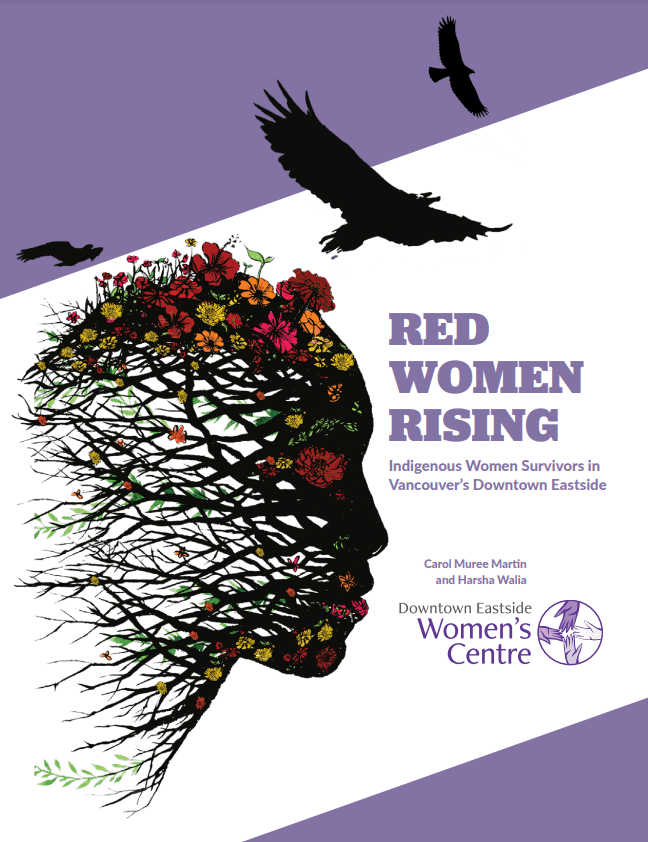78 search results
for
Discrimination and hate
Eliminating structural violence against Indigenous women and girls
Recommendation 3: Increased state enforcement alone cannot eliminate violence against Indigenous women and girls because structural violence is connected to individual acts of male violence. A comprehensive national-level integrated action plan to eliminate violence against Indigenous women and girls must address all the socio-economic factors impacting Indigenous women’s, girls’, trans and two-spirit’s safety including equitable access and self-determination over land, culture, language, housing, child care, income security, employment, education, and physical, mental, sexual and spiritual health.-
Category and theme:
Audience:
Groups affected:
Location of recommendation:
Legislative reform to reduce Indigenous women’s manufactured vulnerability
Recommendation 4: Implement independent civilian oversight of officials responsible for responding to and investigating violence against Indigenous women. Ensure that administrative, disciplinary, or criminal measures are available to hold such officials accountable when officers are found to have failed to act on reports of missing women or to have carried out biased or inadequate investigations of violence against Indigenous women.-
Category and theme:
- Access to justice ,
- Courts ,
- Decolonization and Indigenous rights ,
- Discrimination and hate ,
- Gender-based violence ,
- Health, wellness and services ,
- Human rights system ,
- Indigenous issues in policing and justice ,
- Missing and murdered Indigenous women, girls, Two-Spirit, and LGBTQ2SIA+ people ,
- Policing ,
- Policing and the criminal justice system ,
- Sexism
Audience:
Groups affected:
Location of recommendation:
Legislative reform to reduce Indigenous women’s manufactured vulnerability
Recommendation 5: Remove discrimination from the Indian Act by making women and men equal in the ability to pass on status, repair situations where discrimination against women has disadvantaged those claiming status through the mother’s line, and remove the two-parent rule for transmitting status and the 6(2) cutoff that withholds status from the children of many women who are unable or unwilling to provide the father’s name.-
Category and theme:
Audience:
Groups affected:
Location of recommendation:
Legislative reform to reduce Indigenous women’s manufactured vulnerability
Recommendation 8: End the policing practice of street checks; reduce the number of bylaw infraction tickets issued by police in the DTES; prohibit police from carrying and using all lethal weapons; develop guidelines to facilitate greater use of police discretion not to lay charges especially for minor poverty-related offences; and end the counter-charging and criminalization of Indigenous women who defend themselves or their children.-
Category and theme:
- Access to justice ,
- Classism ,
- Decolonization and Indigenous rights ,
- Discrimination and hate ,
- Economic inequality ,
- Human rights system ,
- Indigenous children and youth in care ,
- Indigenous issues in policing and justice ,
- Indigenous rights and self-governance ,
- Policing and the criminal justice system ,
- Poverty ,
- Poverty and economic inequality ,
- Sexism
Groups affected:
Location of recommendation:
Legislative reform to reduce Indigenous women’s manufactured vulnerability
Recommendation 10: Repeal laws that criminalize or increase harm for Indigenous women in the sex trade.-
Category and theme:
Audience:
Groups affected:
Location of recommendation:
Recommendation 12:
End the criminalization of homelessness by eliminating bylaw infractions and criminal charges for sleeping or tenting in public spaces, and end the displacement of tent cities.
-
Category and theme:
Groups affected:
Location of recommendation:
Recommendation 13:
Change government definitions of social housing and affordable housing to mean rates that are affordable to people on social assistance, and rents that are income-geared not market-geared.
-
Category and theme:
Groups affected:
Location of recommendation:
Legislative reform to reduce Indigenous women’s manufactured vulnerability
Recommendation 14: Amend the provincial Residential Tenancy Act to cover all housing and to strengthen tenants rights. Amend the provincial Human Rights Code and Residential Tenancy Act to make it illegal to discriminate on the basis of social condition including health status and drug use.-
Category and theme:
Audience:
Groups affected:
Location of recommendation:
Immediate services needed in the DTES
Recommendation 17: Fund more 24/7 low-barrier emergency shelters, transition homes, and drop-ins for women with long-term funding and full wrap-around supports. Also fund more Indigenous-centered and community-based, rather than police-based, victim services programs that provide holistic support including connection to land-based healing and guidance from elders.-
Category and theme:
Audience:
Groups affected:
Location of recommendation:
Guaranteed public services
Recommendation 28: Provide a safe and affordable home for every Indigenous woman on and off reserve. This housing must be with long-term security of tenure, independent of matrimonial or common-law status, and self-contained units of at least 400 square feet with bathrooms and kitchens. Housing must also consider specific needs such as mobility access, space for children and extended families, and ceremonial practices. Highest priority for social housing should be given to Indigenous women fleeing violence and Indigenous mothers at risk of child apprehension.-
Category and theme:
Audience:
Groups affected:
Location of recommendation:
